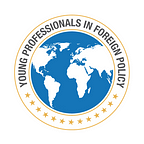The Global Nature of Border Disputes: Recent and Centuries-Long Disagreements
By Dan Kent
It is well-known that most modern nation-state borders were drawn relatively recently, resulting from the aftermath of World War II and the decline of European colonization worldwide. However, what is less well-known is the broad extent to which these borders are today, in many places, still deeply unsettled. These disputes span the globe, reflecting both recent and centuries-long conflicts and disagreements. Beyond the frequently discussed and reported geopolitical conflicts, many lesser-known border disagreements have had a meaningful impact on the lives of those living there.
Each dispute varies in history, context, and consequences ranging from international court battles to actual armed conflict. Nevertheless, looking at even a relatively small cross-section of them by continent, several themes emerge. Several current disputes in Europe appear linked to Russian influence or outright occupation. In Latin America, old disagreements have remained intractable, rooted in the actions of former European colonizers. African border conflicts, similarly, have their roots in both the lines drawn (or not drawn) by former colonial powers and by current national conflicts leading to breakaway regions. Lastly, current border conflicts in Asia are among the hottest in the world, regularly resulting in deaths and minor military clashes as recently as 2021.
Europe
Europe is currently home to several significant disputes, two of which have direct ties to Russian influence or actions. First, Russia’s annexation of Crimea in 2014 was the first hostile change in Europe’s borders since World War II. Although polls indicated the Crimean people were largely supportive of this move, it remains internationally recognized as Ukrainian. Nearby in Moldova, another border dispute linked to Russia has its roots in the early Soviet days of the 1920s. A northeastern sliver of the country, known as Transnistria, has long claimed independence with military and financial support from Russia. Lastly, Kosovo’s 2008 declaration of independence from Serbia made it the most recent internationally recognized country after South Sudan — but Serbia itself still disputes the legitimacy of Kosovo, a position also supported by Russia.
Latin America
In Latin America, some of the oldest border disputes in the world remain hotly contested. Guyana and Venezuela have disagreed on their border for over a century, stemming from differing claims during the colonization era. The stakes are now raised with the discovery of substantial oil reserves in land claimed and occupied by Guyana. Guatemala has claimed Belize as a wayward province since independence in 1821, and the arbitration of the issue managed by the International Court of Justice was further delayed by the pandemic. Lastly, Chile and Bolivia have had simmering tensions over land encompassed by the Atacama Desert for more than a century. The region in question cuts off Bolivia’s access to the Pacific Ocean and makes it one of only two landlocked countries in South America. In 2018, when the International Court of Justice ruled that Chile had no legal requirement to grant Bolivia sovereign access to the sea, President Evo Morales said that “Bolivia will never give up.” Some of the oldest border disputes in the world show little sign of abating any time soon.
Africa
African border disputes are characterized by disagreements between former colonizers and internal conflicts leading to breakaway regions. The dispute over Western Sahara captures both themes, originating from Spain’s withdrawal from the region in 1975, after which the Algerian-supported Polisario fought for independence from Morocco until a ceasefire was eventually declared. In 2020, though, the dispute flared once again as the United States recognized Morocco’s claims to the land in return for Morocco establishing relations with Israel. Further east, the Halaib Triangle between Egypt and Sudan has been in dispute for decades, resulting from borders drawn by the British at the turn of the 20th century. Moreover, war-torn Somalia is in the throes of multiple border disputes between Ethiopia and the northern region of Somaliland, a self-governing territory that claims itself as independent.
Asia
Meanwhile, Pakistan and India’s longstanding conflict over Jammu and Kashmir in 2020 escalated into a shutdown of the region’s internet as Modi’s government cracked down on the area and revoked its special status, with widespread civil unrest causing dozens of deaths and injuries. This is on top of the dozens of deaths from similar events in 2016. Not far from Jammu and Kashmir in the Himalayan Ladakh region, China and India have continuously escalated tensions over their disputed and militarized border for decades. As recently as 2020, tensions heightened into outright conflict, leading to at least 20 personnel deaths.
In Central Asia, Tajikistan and Kyrgyzstan have argued since the collapse of the Soviet Union on 600 miles of border between them, leading to bloodshed as recently as 2021. Finally, in the Caucasus nations, several border disputes have long destabilized the small region. The recent two-week war between Armenia and Azerbaijan over Nagorno-Karabakh was the end of a decades-long dispute over who could call that land home and resulted in thousands of deaths. In addition, the country of Georgia has several breakaway semi-independent regions supported by Russia, including Abkhazia to the northwest and South Ossetia in its center.
Conclusion
These border disputes continue unabated. This initial list surfaces over 20 different countries, spanning most of the world’s geographies across four continents.
The following few articles in Emerging Voices will delve into a few of these disputes, especially the lesser-known ones, situating their relevance within the greater global policy environment and providing details on where they stand today. Instead of living in a world defined by borders, much of the world lives every day with the reality that where they live is contested.
Dan Kent is a research and evaluation professional currently working in philanthropy in New York and is a staff writer for the Emerging Voices column.
